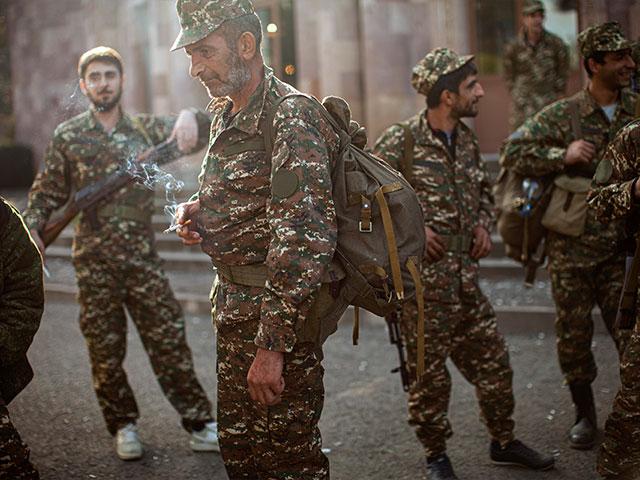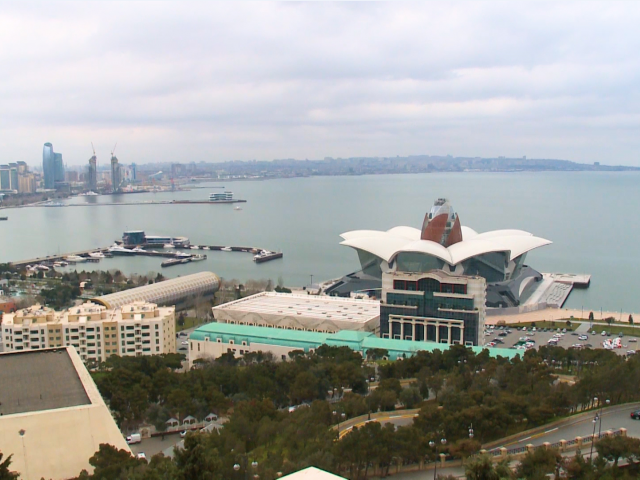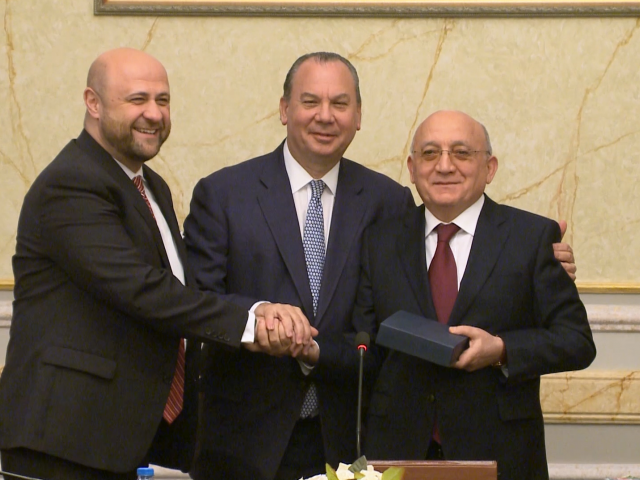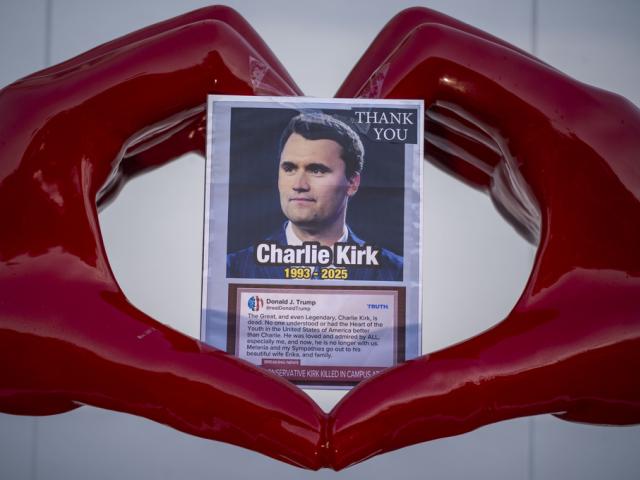JERUSALEM, Israel – Israel may halt its sale of weapons to Azerbaijan after facing outrage from Armenia as violence continues to flare between the two neighboring South Caucasian countries.
“I think that in this situation, Israel will stop supplying weapons to Azerbaijan. We are cooperating with the Israeli Foreign Ministry, there are certain people in the presidency, there are people who have influence,” Armen Smbatyan, Armenia’s Ambassador to Israel told the Armenian news outlet Factor.am.
“In two or three days they seem to be on the way to stopping the supply of weapons… I was given a verbal promise,” he added.
Last week, Armenia recalled its ambassador to Israel from the Jewish State in protest over Israel’s continued sale of weapons to the Islamic country of Azerbaijan. Violence broke out between Armenia and Azerbaijan on Sept. 27 over the disputed territory of Nagorno-Karabakh – a province about the size of the state of Delaware.
Israel has strong ties with both countries, making it hard for it to maintain its neutrality. Azerbaijan has a particularly strategic relationship with the Jewish State because it supplies large amounts of fuel to Israel. Meanwhile, Israel is believed to supply up to 60% of Azerbaijan’s weapon systems.
Azerbaijan has been using Israeli drones against Armenians in the latest round of violence, Hikmet Hajiyev, assistant to the president of Azerbaijan, told Israel’s Walla news site last week.
The deadly clashes are threatening to push the region to the brink of an all-out war and draw in regional powers like Iran, Russia, and Turkey.
Hundreds of people have been reportedly killed.
Why Are They Fighting?
Today’s conflict between Armenia and Azerbaijan is deeply rooted in their history under Soviet Communist rule. After the Soviet Union fell, the new borders of the region have remained disputed.
When the Soviet Union was entering its final years in the late 1980s, Nagorno-Karabakh, which had an autonomous status within Azerbaijan, voted to join Armenia.
Tensions between Christian Armenians and mostly Muslim Azeris, fueled by the trauma of 1.5 million Armenians slaughtered by the Ottoman Turks in 1915, boiled over into open clashes. Those hostilities escalated into a full-blown war as the Soviet Union collapsed in 1991, killing an estimated 30,000 people.
The war ended in 1994 with a ceasefire and Armenian forces in control of Nagorno-Karabakh. The province has been predominately populated and controlled by ethnic Armenians backed by the Armenian government for more than 25 years.
However, the international community considers Nagorno-Karabakh to still be a part of Azerbaijan and has failed to settle the dispute between the two countries.
Despite the ceasefire, the region has remained tense and skirmishes have periodically broken out. The new round of fighting beginning on Sept. 27 is the biggest escalation in the conflict since 1994.
Both Armenia and Azerbaijan blame each other for the current clashes and accuse each other of targeting civilians. Azerbaijan has made a ceasefire conditional on Armenia’s withdrawal from Nagorno-Karabakh.
Who are the Regional Players?
Turkey openly supports Azerbaijan in part due to the long-standing hostility between Turkey and Armenia following the Armenian Genocide at the hands of the Ottoman Turks. Armenian officials have alleged that Turkey is sending fighters from Syria to Azerbaijan. French President Emmanuel Macron echoed that accusation and claimed to have information about Syrian mercenaries reaching Nagorno-Karabakh after passing through Turkey. Turkey denies claims it is sending fighters to the conflict zone and Azeri officials called the accusations “absolutely baseless.”
Turkish President Recep Tayyip Erdogan said Ankara will stand with its ally Azerbaijan until it reaches “victory.”
Meanwhile, Iran, which borders both countries, said this week it is working on a peace plan to end the decades-old conflict over Nagorno-Karabakh.
Russia is the most dominant military power in the Caucuses and has close relationships with both Armenia and Azerbaijan. Analysts say Russia is the only regional power capable of quelling the unrest, but so far has remained neutral. Russia joined the US and France in a joint statement last week condemning the violence and urging “the leaders of Armenia and Azerbaijan to commit without delay to resuming substantive negotiations.”
What is prayer? Does God hear me if I pray? Your important questions about prayer are addressed here.
Need prayer? We’re available 24/7. Call (800) 700-7000 or request prayer.
Learn why Truth Matters at CBN News.Did you know?
God is everywhere—even in the news. That’s why we view every news story through the lens of faith. We are committed to delivering quality independent Christian journalism you can trust. But it takes a lot of hard work, time, and money to do what we do. Help us continue to be a voice for truth in the media by supporting CBN News for as little as $1.










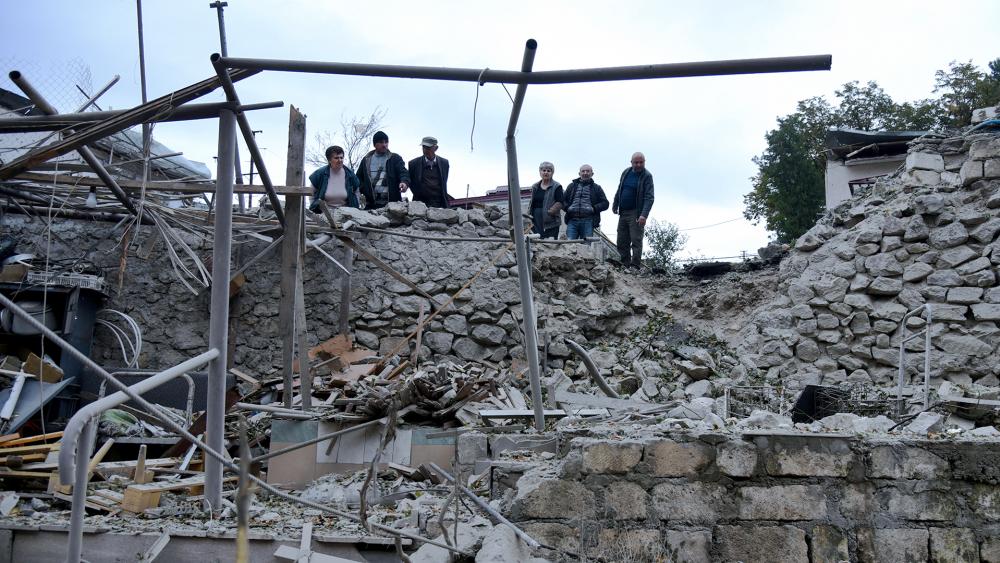
 Support CBN News
Support CBN News



